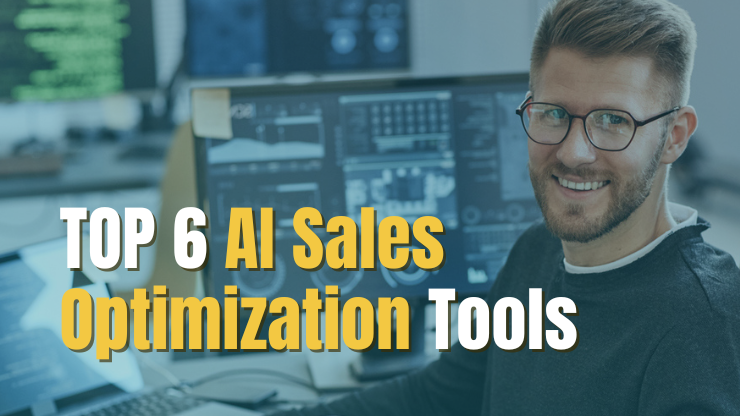
In the ever-evolving landscape of business, the ability to accurately predict future sales is a cornerstone for success. Sales forecasting, a critical component of strategic business planning, involves estimating what a company’s future sales will be. Traditionally, this process has relied heavily on historical data and human intuition. However, with the advent of advanced AI tools, the approach to sales forecasting is undergoing a transformative shift, offering unprecedented accuracy and insights.
The Evolution of Sales Forecasting
Traditionally, sales forecasting has been a blend of art and science. Sales teams would analyze past sales data, market trends, and rely on their experience and intuition to predict future sales. While this method has its merits, it is often limited by human bias and the inability to process large volumes of data efficiently.
The introduction of basic statistical methods and later, machine learning algorithms, marked the first wave of technological integration in sales forecasting. These methods allowed for more data-driven, objective forecasts. However, they still struggled with complex, non-linear patterns in sales data, which are common in today’s dynamic market environments.
The Advent of Advanced AI in Sales Forecasting
The latest revolution in sales forecasting comes with the integration of advanced AI tools. These tools, powered by sophisticated algorithms and deep learning techniques, can analyze vast datasets far beyond the capacity of traditional methods. They can identify complex patterns, trends, and correlations that would be impossible for a human analyst to discern.
One of the key strengths of advanced AI in sales forecasting is its ability to process and learn from unstructured data – such as social media sentiment, news trends, and even weather patterns – which can have a significant impact on sales. This holistic approach enables a more nuanced and comprehensive understanding of the factors influencing sales.
AI Generated Content
Amidst these advancements, AI content plays a pivotal role. It has the capability to simulate various market scenarios based on existing data, allowing companies to prepare for a range of potential futures. This aspect of AI is particularly useful in creating and testing hypotheses about how different factors might influence sales, leading to more robust and adaptable forecasting models.
Real-Time Analytics and Predictive Power
Another significant advantage of advanced AI tools in sales forecasting is their ability to provide real-time analytics. In a fast-paced market, the ability to quickly adjust forecasts in response to real-time data can be a game-changer. AI systems can continuously learn and adapt, improving their accuracy over time and providing businesses with up-to-date forecasts.
This predictive power extends beyond mere number crunching. Advanced AI systems can also predict customer behavior, identify emerging market trends, and even suggest optimal pricing strategies. This level of insight is invaluable for businesses looking to stay ahead of the curve.
Overcoming Challenges and Limitations
Despite the clear advantages, integrating advanced AI into sales forecasting is not without its challenges. One of the primary concerns is the quality of data. AI systems are only as good as the data they are trained on. Inaccurate or biased data can lead to flawed forecasts. Therefore, ensuring data quality is paramount.
Another challenge is the interpretability of AI models. Many advanced AI systems are often seen as ‘black boxes’, providing little insight into how they arrive at a particular forecast. This can be a hurdle in gaining trust and buy-in from stakeholders who are accustomed to more transparent methods.
The Future of Sales Forecasting
Looking ahead, the role of advanced AI in sales forecasting is set to grow exponentially. As these tools become more sophisticated and accessible, they will become an integral part of the sales planning process. The future of sales forecasting is one where AI-driven insights complement human intuition, leading to more accurate, dynamic, and effective sales strategies.
In conclusion, the integration of advanced AI tools in sales forecasting represents a significant leap forward in how businesses approach this crucial task. By leveraging the power of AI, companies can gain deeper insights, anticipate market changes more effectively, and make more informed decisions. As these technologies continue to evolve, they will undoubtedly unlock new potentials in sales forecasting, driving business growth and success in an increasingly competitive landscape.
Enhancing Collaboration and Decision-Making
The integration of advanced AI in sales forecasting also fosters enhanced collaboration across different departments of a business. By providing a unified view of forecasted sales data, these tools enable marketing, finance, production, and other departments to align their strategies more effectively. This cross-functional alignment is crucial for businesses to respond cohesively to market demands and changes. Moreover, AI-driven forecasts can serve as a common ground for discussions, helping to break down silos and encourage a more integrated approach to business planning.
Customization and Personalization
Another significant aspect of advanced AI in sales forecasting is its ability to tailor forecasts to specific business needs. Unlike one-size-fits-all traditional methods, AI algorithms can be customized to consider unique aspects of a business, such as specific customer segments, regional market peculiarities, or even particular product lines. This customization leads to more relevant and actionable forecasts, enabling businesses to focus their resources more effectively. Furthermore, AI can help in personalizing customer interactions by predicting individual customer preferences and behaviors, thereby enhancing customer engagement and satisfaction.
Ethical Considerations and Future Directions
As with any advanced technology, ethical considerations are paramount when implementing AI in sales forecasting. Issues such as data privacy, security, and the potential for algorithmic bias must be addressed. Businesses need to establish clear ethical guidelines and ensure that their AI systems are transparent and accountable. Looking towards the future, we can expect to see a greater emphasis on ethical AI in sales forecasting, with a focus on developing algorithms that are not only powerful but also fair and responsible. Additionally, as AI technology continues to evolve, we may see the emergence of new models that can forecast sales with even greater accuracy, taking into account a broader range of variables and market dynamics.




More Stories
AI & Machine Learning: Dedicated Servers with GPUs – Powering the Future
Methods to avoid phishing scams
Anonymous note-taking – Tips for maintaining your privacy